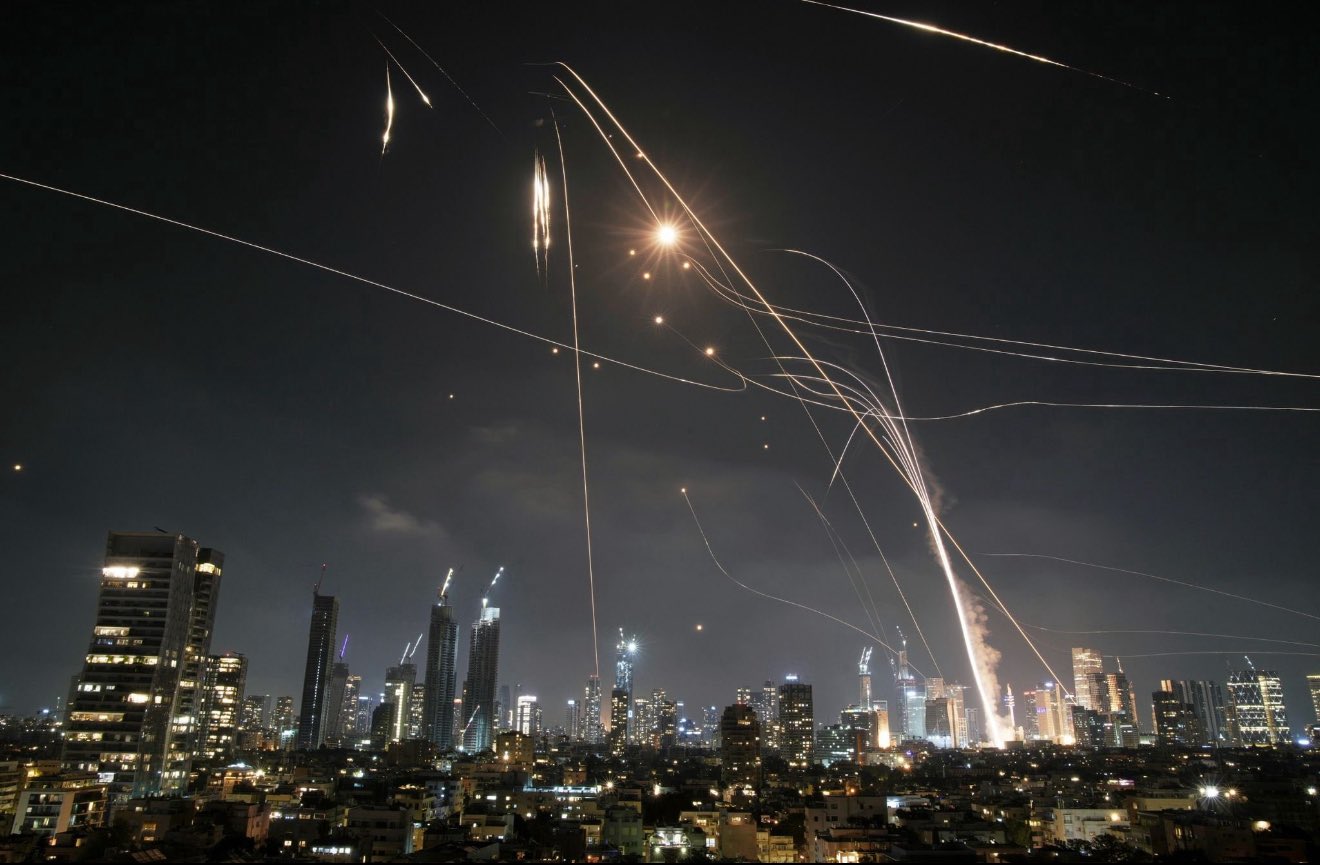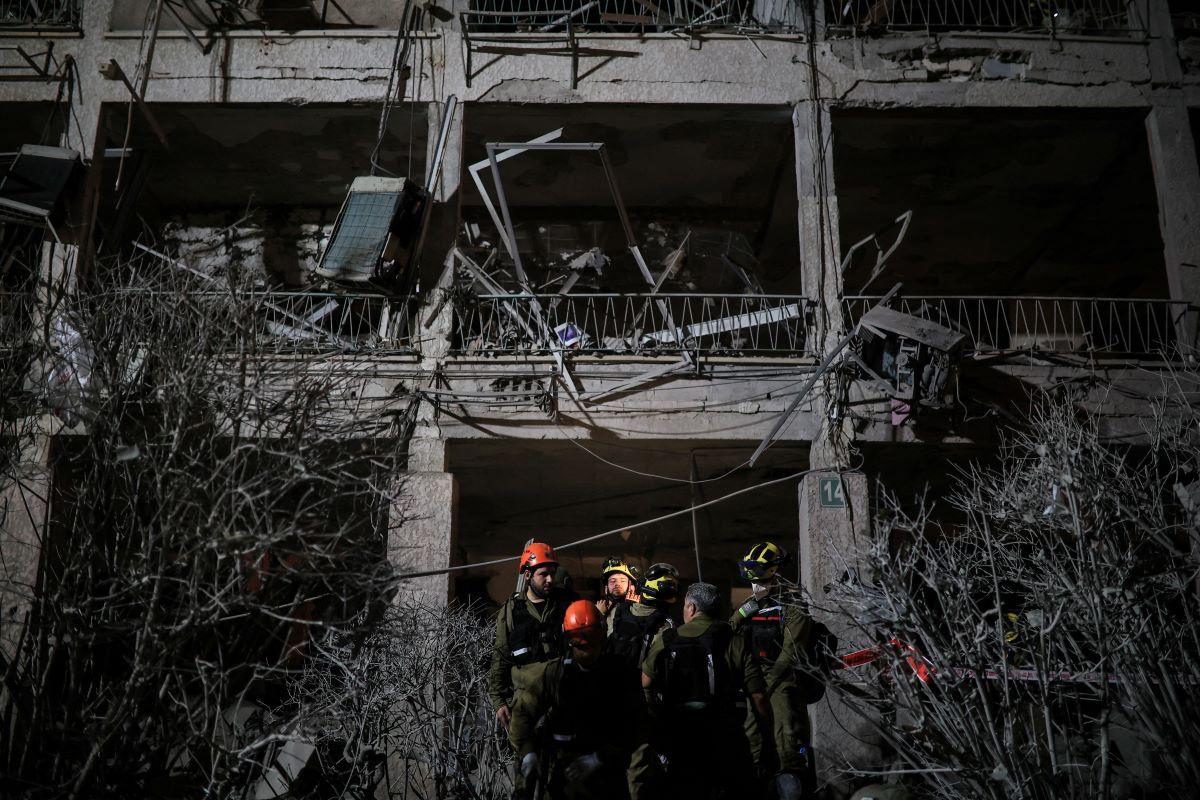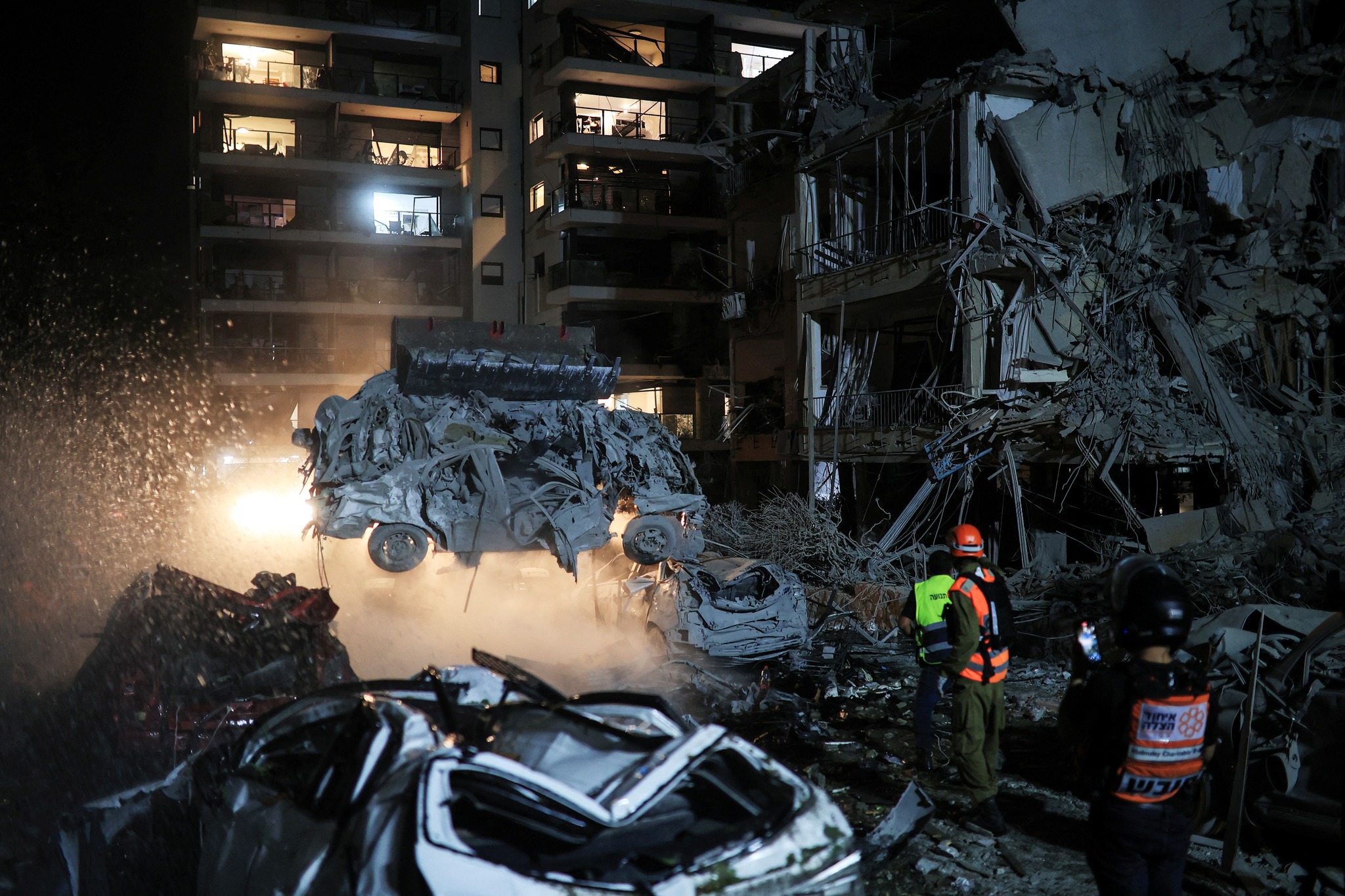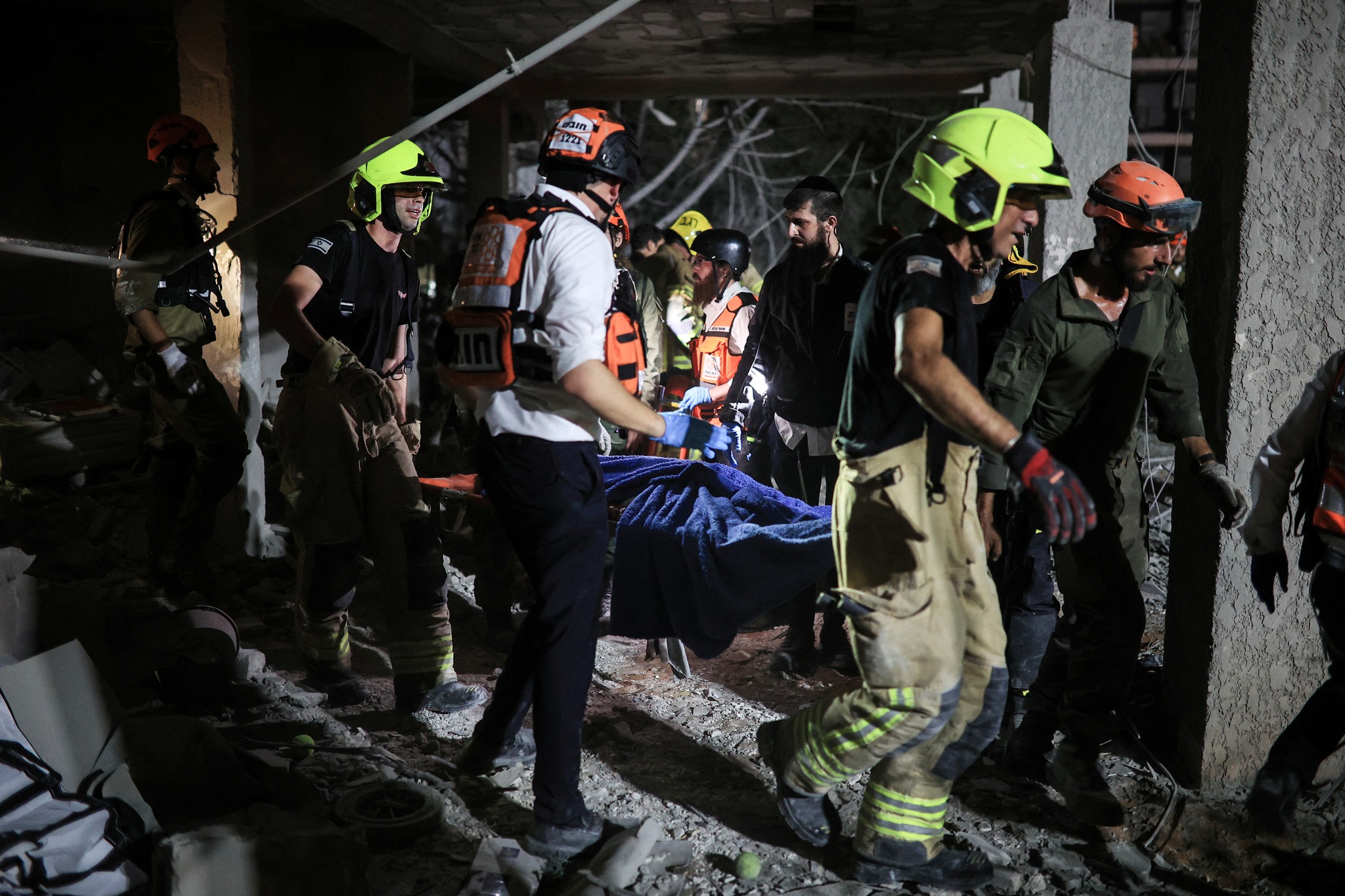June 14, 2025 — Tel Aviv/Jerusalem/Tehran
Tensions in the Middle East have reached a critical new level as Iran launched a powerful missile counterattack on Israel, following one of the most extensive Israeli military operations against Iranian nuclear and military facilities in recent history.

The confrontation began late Thursday night when Israel launched “Operation Rising Lion,” a coordinated aerial assault targeting Iran’s key nuclear infrastructure, including the Natanz uranium enrichment site and the heavily fortified Fordow facility. Israeli jets also struck various Revolutionary Guard military compounds in central and southern Iran. The Iranian government confirmed that at least 78 people were killed in the attacks, including senior military officials and nuclear scientists, with over 320 more injured. The UN’s International Atomic Energy Agency later confirmed significant damage at the Natanz site.
Within hours, Iran responded with a large-scale missile strike dubbed “Operation True Promise III,” aiming dozens of ballistic missiles at major Israeli population centers including Tel Aviv and Jerusalem. According to a report by GMA News, the Israeli military stated that fewer than 100 missiles were launched. Most were intercepted by Israel’s Iron Dome and Arrow missile defense systems—with critical support from U.S. forces in the region. Nevertheless, some missiles breached the defenses, striking parts of central Tel Aviv and the surrounding city of Ramat Gan.

At least one Israeli civilian was killed, and dozens more were injured, according to Israeli emergency services. Reuters reported two individuals in critical condition, eight others seriously injured, and more than 30 treated for minor wounds, mostly from shrapnel and debris. Images from the scene showed shattered apartment buildings, burned-out cars, and panicked civilians rushing for shelter.

Israeli Prime Minister Benjamin Netanyahu vowed that “any further aggression from Iran will be met with overwhelming force,” while Iranian officials warned that they are prepared for “a prolonged and justified defense.” Both nations insist their actions are defensive in nature.
The United States, a key ally of Israel, played a visible role in missile interception efforts and has since begun evacuating non-essential personnel from military bases in the region. U.S. officials have urged restraint on both sides, warning that a prolonged conflict between the two powers could drag the entire region into chaos.
Airspaces over Iraq, Jordan, and parts of the Persian Gulf have been closed to civilian aircraft, with several airlines suspending flights in and out of the region. Analysts say the strikes mark one of the most dangerous escalations between Iran and Israel in decades, with nuclear concerns, geopolitical rivalry, and deep-rooted animosity fueling fears of a broader war.
As diplomatic channels grow increasingly strained, global leaders are calling for immediate de-escalation. But with blood already spilled on both sides and strategic red lines crossed, the coming days could determine whether this is a momentary flare-up—or the beginning of a much wider conflict.







